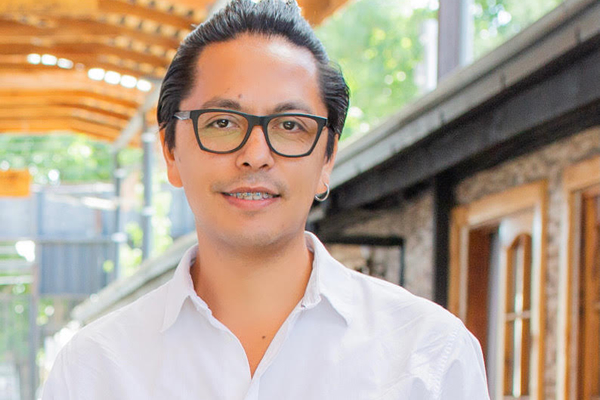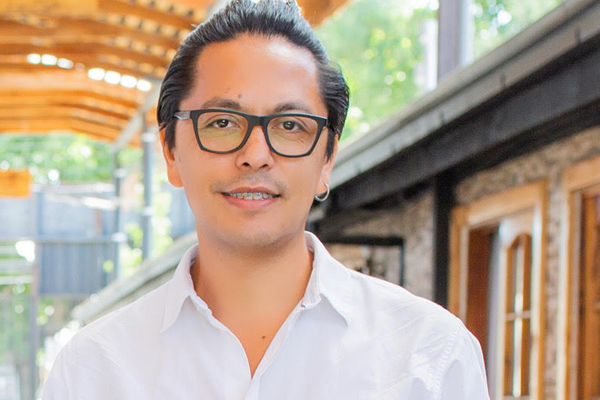
Editor’s note: The Washington Blade published a Spanish version of this story on May 20.
CONCEPCIÓN, Chile — LGBTQ activists and organizations celebrated the results of last weekend’s historic elections in Chile in which eight openly queer candidates were elected to write the Latin American country’s new Constitution.
They are Jennifer Mella, Valentina Miranda, Bessy Gallardo, Pedro Muñoz, Javier Fuchslocher, Gaspar Domínguez, Rodrigo Rojas and Tomás Laibe, who represent 5.2 percent of the total of 155 seats that will make up the Constitutional Convention.
“Although the representation of people with different sexual diversities remains low, it is a historic step to have constituencies that allow us to install the urgency of our demands, and promote respect and protection of the rights of the LGBTIQ+ population in the new constitution and in society. The commitment of feminist and progressive forces regarding these issues will also be very relevant, and as an observatory we will be attentive to that discussion,” explained Marion Stock, coordinator of Les Constituyentes, Marion Stock, in a statement after the votes were counted.
The Movement for Homosexual Integration and Liberation (Movilh), meanwhile, described “as historic that eight openly LGBTIQ+ people had been elected as constituents, inasmuch as this allows the rich diversity of Chile to have a voice and vote in the most important transformation process faced by the country.”
“We hope that the new constitution explicitly guarantees nondiscrimination based on sexual orientation, gender identity and expression; as well as by all the categories protected in the Zamudio Law; and full equality of rights is recognized for all individuals, couples and families, whatever their composition. Only with this, each and every one of the homo/transphobic laws and public policies that still persist in Chile can be eliminated at once,” said Movilh spokesperson Óscar Rementería.
Laibe from the Socialist Party of Chile, who was elected in the southernmost area of the country, views his presence and that of seven other LGBTQ people at the convention will help replace the current constitution as a cultural milestone. The current Chilean constitution has been in place since Augusto Pinochet’s military dictatorship.
“I think it is a milestone that, first, we have had more than 40 candidates of sexual diversity to this Constitutional Constitution,” said the political scientist during an interview with Lo Que Queda del Día on Cooperativa radio. “It is a milestone in the history of Chile and it will probably set the tone for what the rest of the elections, in which I am sure we will have more of a presence, will be.”
He added that “we feel proud in our case, because we were the only diverse candidacy in the southern region, where we are so isolated and suddenly we are much more conservative than in the rest of the country and we do not realize that in Santiago they pass things and that perhaps there is a cultural advance that is very different from what is happening in the regions.”
“It has been very important to nail down this flag, to talk about sexual diversity throughout the campaign to try to make visible this problem that is part, I think, of the diagnosis of the social outbreak: There are flags that have been hidden, invisible, for a long time; there are people who feel discrimination every day and who experience inequality and discriminatory treatment in education, health, at work,” said Laibe. “That is going to be, without a doubt, one of the struggles that we are going to have to address in the Constitutional Convention.”
Chileans in the last elections not only elected Constitutional Convention members. They chose their new community and regional representatives. And the LGBTQ community also saw positive results in these races.
The Washington Blade spoke with Cristian Martínez, an LGBTQ activist who was elected as a councilmember in Molina, a city that is 210 kilometers south of the Chilean capital of Santiago.
His race made national news a few weeks ago due to the fact that an Adventist college distributed openly anti-LGBTQ text to its students. Martínez last Sunday made history in Molina as the first openly gay person to be elected as an elected official in his home region.
“My city and my region is rural and conservative. We are a rural area, however, there is a process of change and that is demonstrated by the fact that they have elected me, an openly gay person as a councilor, but it is slower than what is happening in the big cities, I believe that we are going slower here with respect to the LGBTQ+ community and particularly trans people, therefore visibility is the most important thing,” Martínez told the Blade.
“As long as residents do not know trans people, lesbian, bisexual, gay, intersex people, etc., they will not know how to love, respect and welcome them, I believe that making ourselves visible is the most important thing and there you have to do a job that we are advancing. I believe that my town is willing to advance on these issues, but the challenge is huge. There are slightly more conservative Christian communities that also exert social pressure in certain spaces. I believe that this will be lessened as we become more visible,” concluded the now-elected councilor.
Martínez told the Blade that it was “super important” for LGBTQ activists “to participate in these elections because after the social outbreak, all activists and people who participated in social movements felt the responsibility and obligation to assume responsibilities of popular election in the elections that took place. they came, in our territories, in our communes, in our spaces.”
Chile, in this way, leaves behind the prejudices that say LGBTQ people are unqualified to hold public office and this will allow further political inroads, especially in the next elections in November when Chileans go back to the polls to elect a president and members of Congress.

Cristian Martínez (Photo courtesy of Cristian Martínez)